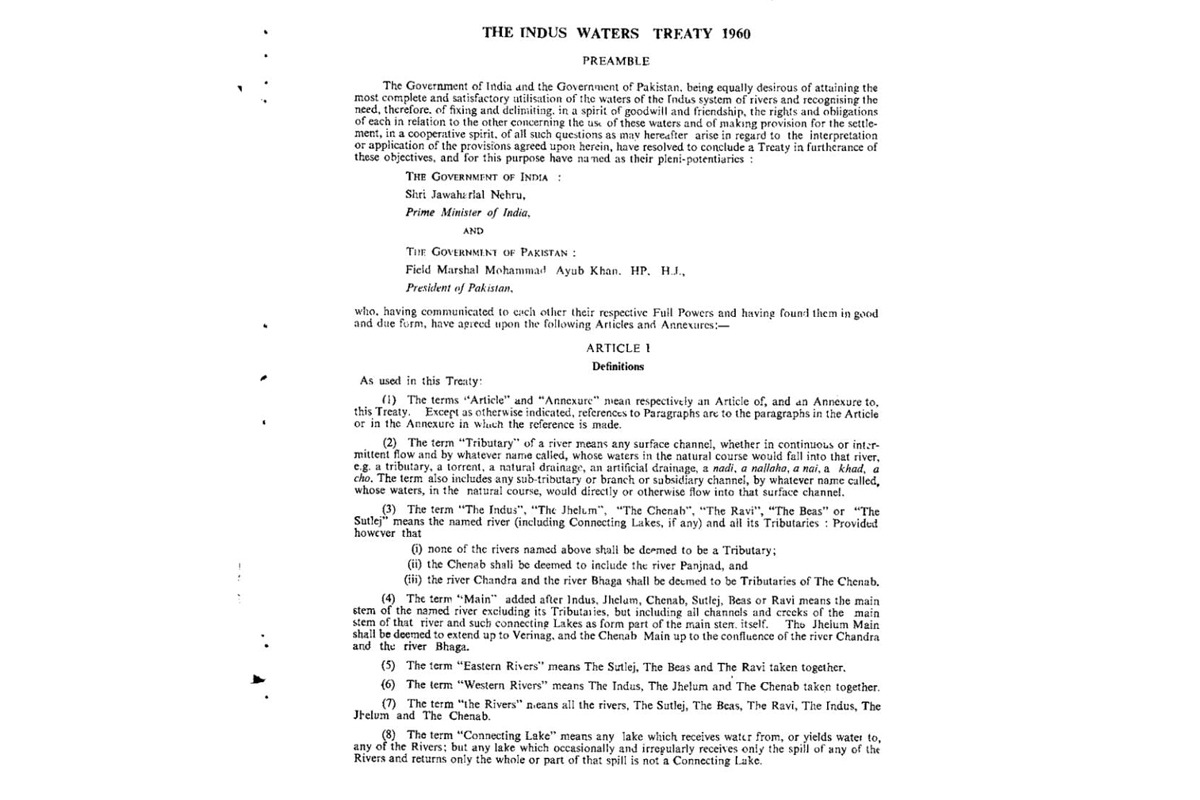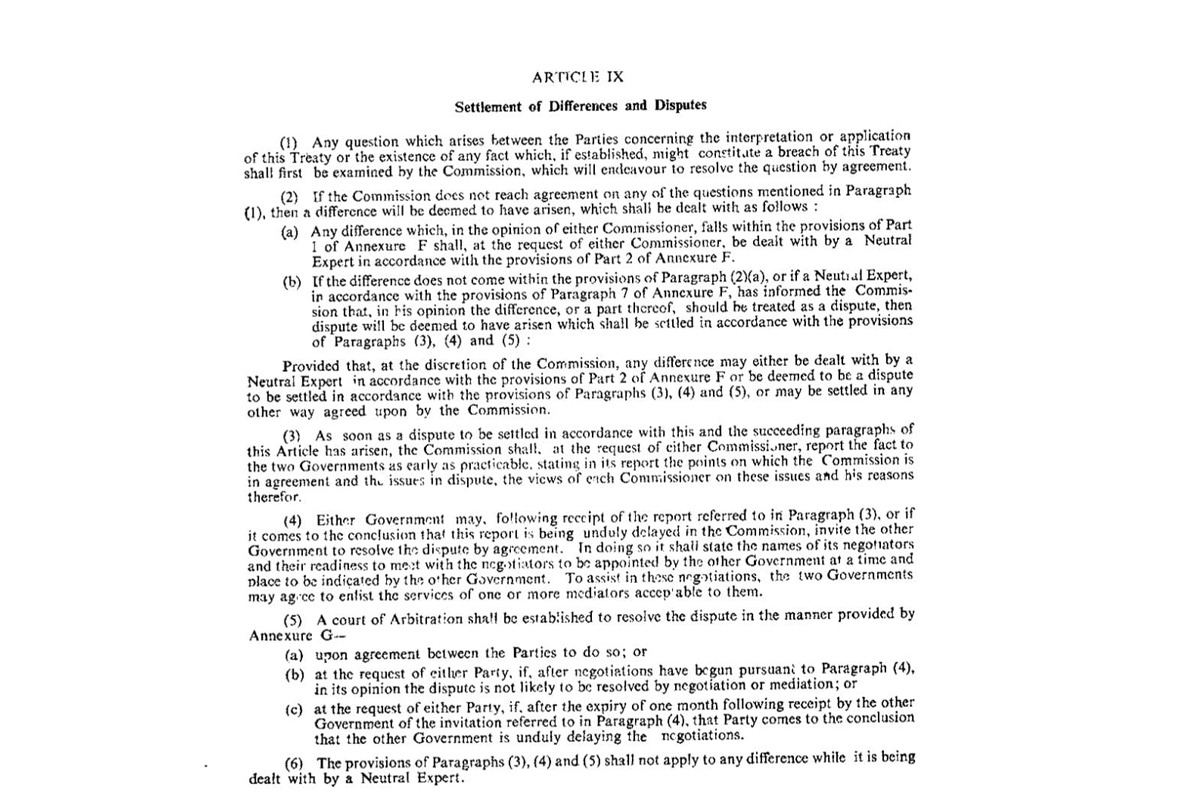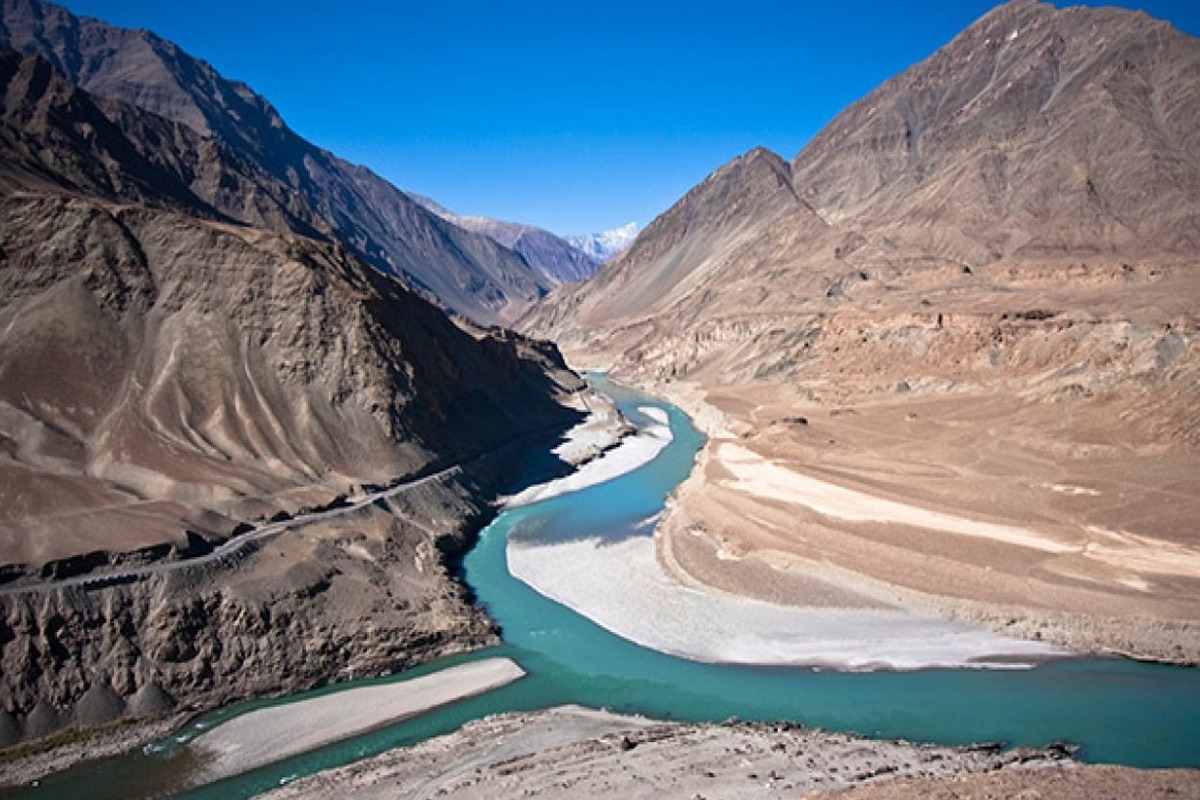India has issued a notice to Pakistani for modification of the bilateral treaty signed 62 years ago for sharing waters of the Indus system of rivers, citing Islamabad’s “intransigence” on its implementation.
The neighbouring country has been asked to respond to the notice on the Indus Waters Treaty (IWT), 1960 within 90 days, said highly-placed sources in New Delhi.
This is for the first time New Delhi has called for amendment in the treaty since its existence.
“The objective of the notice for modification is to provide Pakistan with an opportunity to enter into intergovernmental negotiations within 90 days to rectify the material breach of IWT. This process would also update IWT to incorporate the lessons learned over the last 62 years,” informed a source.
India was forced to issue the notice for modification of the treaty because Pakistan’s actions “adversely impinged on the provisions of IWT and their implementation”, said sources.
“India has always been a steadfast supporter and a responsible partner in implementing IWT in letter and spirit,” they further said.

The notice of modification was sent to Pakistan on January 25 through respective commissioners for the IWT under its Article XII (3) which says, “The provisions of this treaty may from time to time be modified by a duly ratified treaty concluded for that purpose between the two governments.”
The dispute, sources said, refers to Pakistan’s 2016 proposal to settle its objections to India’s Kishenganga and Ratle hydroelectric projects in a court of arbitration. In 2015, the neighbouring country raised objections to the projects and requested the appointment of a neutral expert to examine its technical objections, only to later “unilaterally” withdraw the plea.
ALSO READ: 117th India-Pakistan Permanent Indus Commission Talks Concluded in Islamabad
Sources said that Pakistan’s unilateral action was in contravention of the graded mechanism of settlement of differences and disputes envisaged in Article IX of the treaty.
“Accordingly, India made a separate request for the matter to be referred to a neutral expert,” the source said, adding, “the initiation of two simultaneous processes on the same questions and the potential of their inconsistent or contradictory outcomes creates an unprecedented and legally untenable situation, which risks endangering IWT itself.”

“The World Bank acknowledged this itself in 2016, and took a decision to “pause” the initiation of two parallel processes and request India and Pakistan to seek an amicable way out.”
The sources said that Pakistan refused to discuss the issue during the five meetings of the Permanent Indus Commission between 2017 and 2022 despite repeated efforts by New Delhi to find a mutually agreeable way forward.
“At Pakistan’s continuing insistence, the World Bank has recently initiated actions on both the neutral expert and court of arbitration processes. Such parallel consideration of the same issues is not covered under any provision of the IWT. Faced with such violation, India has been compelled to issue a notice of a modification,” they said.
The Indus Waters Treaty was signed in September 1960 in Karachi by then-Indian PM Jawaharlal Nehru and Pakistani president Field Marshal Mohammad Ayub Khan after nine years of negotiations, with the World Bank being a signatory of the pact.
It sets out a mechanism for cooperation and information exchange between the two countries regarding the use of waters of a number of rivers. The treaty was signed for the “most complete and satisfactory utilisation of the waters of the Indus system of rivers” in a “spirit of goodwill and friendship”.










